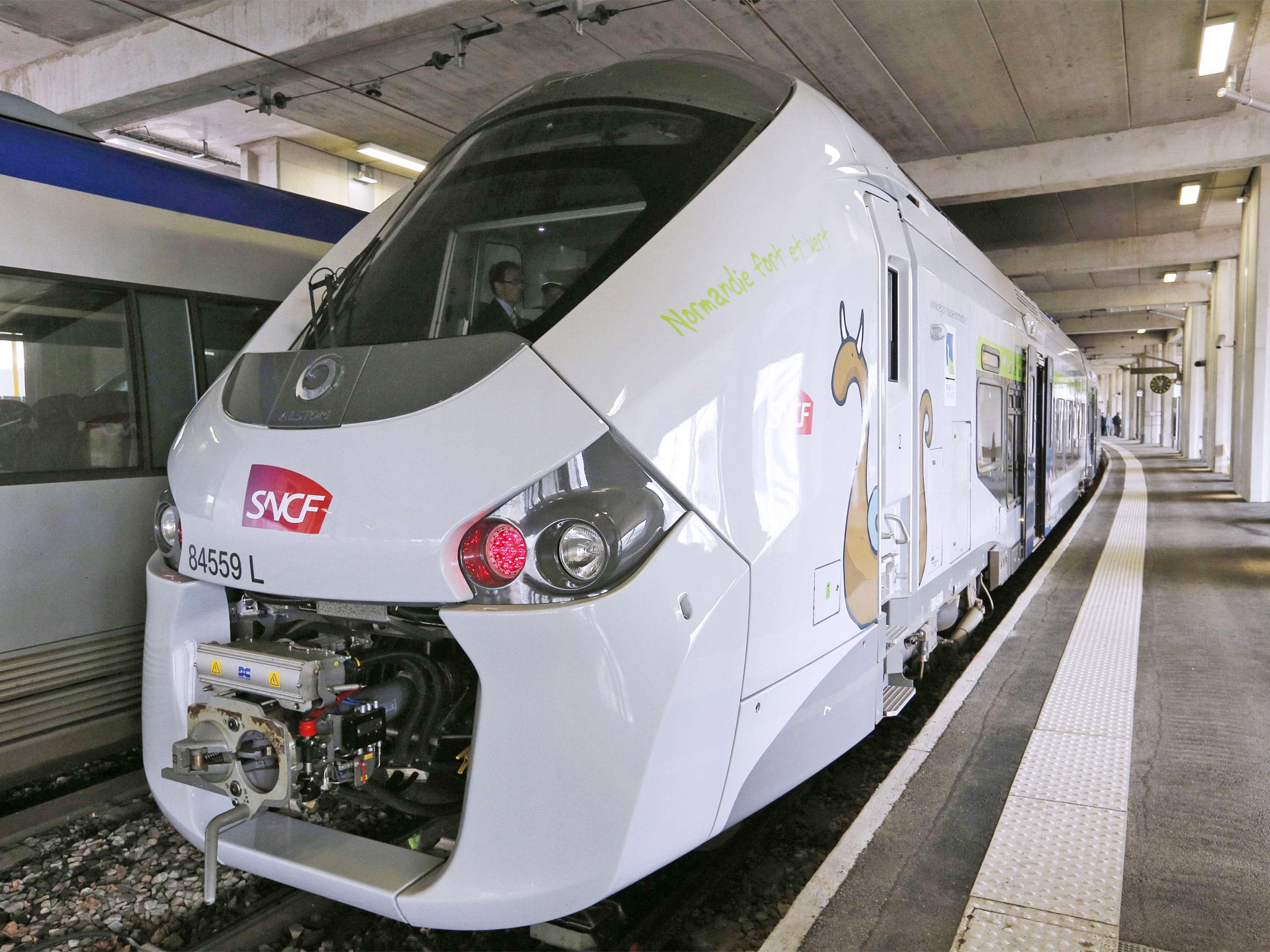Mind le gap! France spends $15 billion on trains that are too fat for 1,300 station platforms
The SNCF blamed the blunder on the decision to split the state-owned network in two in 1997

The country that brought the TGV high-speed train to Europe has accidentally created another first – the TFT, or the Too Fat Train.
More than 2,000 new regional trains ordered by the French state railways company, the SNCF, are too wide to enter the old, rural stations that they are supposed to serve. To the indignation of national and local politicians, 1,300 platforms have to be rebuilt at a cost of at least €50m.
“It’s like ordering a big, new car without checking the width of your garage,” said Emmanuel Grondein, of the SUD-Rail trade union.
As rage and amusement competed on French social networks, the two state-owned companies involved sought to shrug off the blunder and also to turn it to their advantage.
VIDEO: France's costly train blunder
It was “perfectly normal” for 19th-century stations to be modified to take new generations of trains, said Jacques Rapoport, head of Réseau Ferré de France, the organisation that owns the French rail network. Many stations had also been rebuilt to take France’s very successful high-speed TGV trains from the early 1980s, he pointed out.
“Admittedly”, he said, the excessive width of the new regional express trains had been “discovered a little late”. All the same, the cost of rebuilding platforms and increasing the distance between tracks would be “only” €50m, around 1 per cent of RFF’s annual budget for modernisation and repairs.
The SNCF – which runs almost all of the trains on RFF’s tracks – blamed the blunder on the decision to split the state-owned network in two in 1997. The RFF (the equivalent of Network Rail in Britain) had failed to point out that many of its older stations still had platforms incompatible with the new trains ordered from Alstom and Bombardier at a cost of €15bn.
As if by coincidence, a draft law is due to come before the French parliament next month to merge, or re-merge, the two state-owned bodies from next year. Both the SNCF and RFF support the plan but it faces stiff opposition from the French right.
Could the story have been leaked to the investigative weekly newspaper, Le Canard Enchainé, to help make the case?
The SNCF said that the mistake would have no effect on fares. Nor would it delay the introduction of the smart new Regiolis and Regio 2N trains. More than 300 platforms had already been cut back.
The RFF said the cost would come from its existing budget. Since part of the cost of the network is borne by France’s regional governments, a row over who pays is nonetheless raging.
Alain Rousset, of the Association of French Regions, said: “We will refuse to pay an extra centime for these repairs. We can’t be at once the financiers of the network and lambs to be fleeced.”
Jean-Christophe Cambadélis, leader of the Socialist party, called on Mr Rapoport of the RFF and Guillaume Pépy, head of the SNCF, to resign.
Both have been called to face interrogation “as soon as possible” by the National Assembly’s environment committee. A case of two “fat controllers” who failed to spot that their trains were oversized?
Subscribe to Independent Premium to bookmark this article
Want to bookmark your favourite articles and stories to read or reference later? Start your Independent Premium subscription today.

Join our commenting forum
Join thought-provoking conversations, follow other Independent readers and see their replies